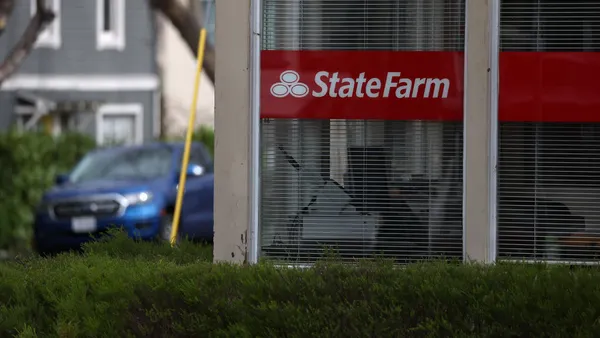Dive Brief:
- Allegedly ageist comments by an AT&T manager about not wanting to hire "tenured" employees fell short of showing that a 60-year-old customer service representative (CSR) in Texas was denied a promotion because of his age, the 5th U.S. Circuit Court of Appeals held (Smith v. AT&T Mobility Services, L.L.C., No. 21-20366 (5th Cir. May 17, 2022)).
- In 2018, after his position was transferred to another facility, the employee accepted a much lower-paying position to avoid relocation. He applied for several higher-paying customer service manager (CSM) jobs locally but was never selected. He claimed that during this time, his manager told him she wasn't "going to hire any tenured employees" at their facility because it was "state of the art ... with the highest technology and equipment" and she needed CSMs who are "innovative" and capable of leading the facility "in the right direction." Believing he was denied a promotion because of his age, the CSR sued AT&T for age discrimination under the Age Discrimination in Employment Act and Texas law.
- The 5th Circuit upheld summary judgment for AT&T. The manager's alleged comments presented a close call, they said. In context, her use of "tenured employees" seemed to be a euphemism for age, the panel noted. But "tenured" isn't synonymous with age, nor is it generally recognized as an expression of ageism, the court explained. So for "tenured employees" to be considered direct evidence of discrimination, the CSR had to establish that the manager intended it to mean age. Absent such evidence, the court presumed she believed that "tenured CSR employees simply possess the wrong kind of experience." In addition, under 5th Circuit precedent, the CSR's claim failed because other employees close to his age were promoted to CSM positions or transferred in from other facilities.
Dive Insight:
As with many ADEA claims, this one involved a manager's ageist comments followed by an adverse action. The case shows the difficulty of proving discrimination based on such comments. The call was close, the 5th Circuit recognized. The manager's comments were made during the relevant time period by a person involved with the promotion decisions. And the manager's direct reference to "tenured employees" identified a class of employees she would not consider for the position.
Given the context, "tenured employees" appeared to be about age, not seniority, the 5th Circuit noted. For one thing, the CSM position requires years of relevant experience, so it seemed unlikely the manager intended to disqualify an entire class of individuals based on their seniority, the panel explained. Also, the manager's explanation for excluding tenured employees — that they would be less "innovative" and unable to lead a "state of the art facility" with high-level technology and equipment — has "everything to do with stereotypes about age," the court noted.
But the plaintiff had to go further. For the comment to be direct evidence of discrimination — evidence that directly proved he wasn't promoted because of his age — he would have had to show that the manager intended "tenure" to mean age, such as by providing testimony from other employees that "tenured" was commonly understood as a code word for age.
Nor was the comment enough to get the claim to trial based on circumstantial evidence. Other employees the CSR's age were given CSM positions, the court pointed out.
By comparison, emails disclosed earlier this year in an age discrimination case against IBM suggested more direct animus against older workers. In one email, an exec appeared to refer to older employees as "dinobabies" who should be invited to leave the company and be made an "extinct species."
Employers should also keep on top of how they word job ads, HR Dive previously reported. An ad recruiting "digital natives" may be more subtle than one seeking "young" workers, but it can still be interpreted as discriminatory, attorneys warned. Similarly, using phrases such as "recent college grad" may violate the ADEA if they tend to screen out older workers.











